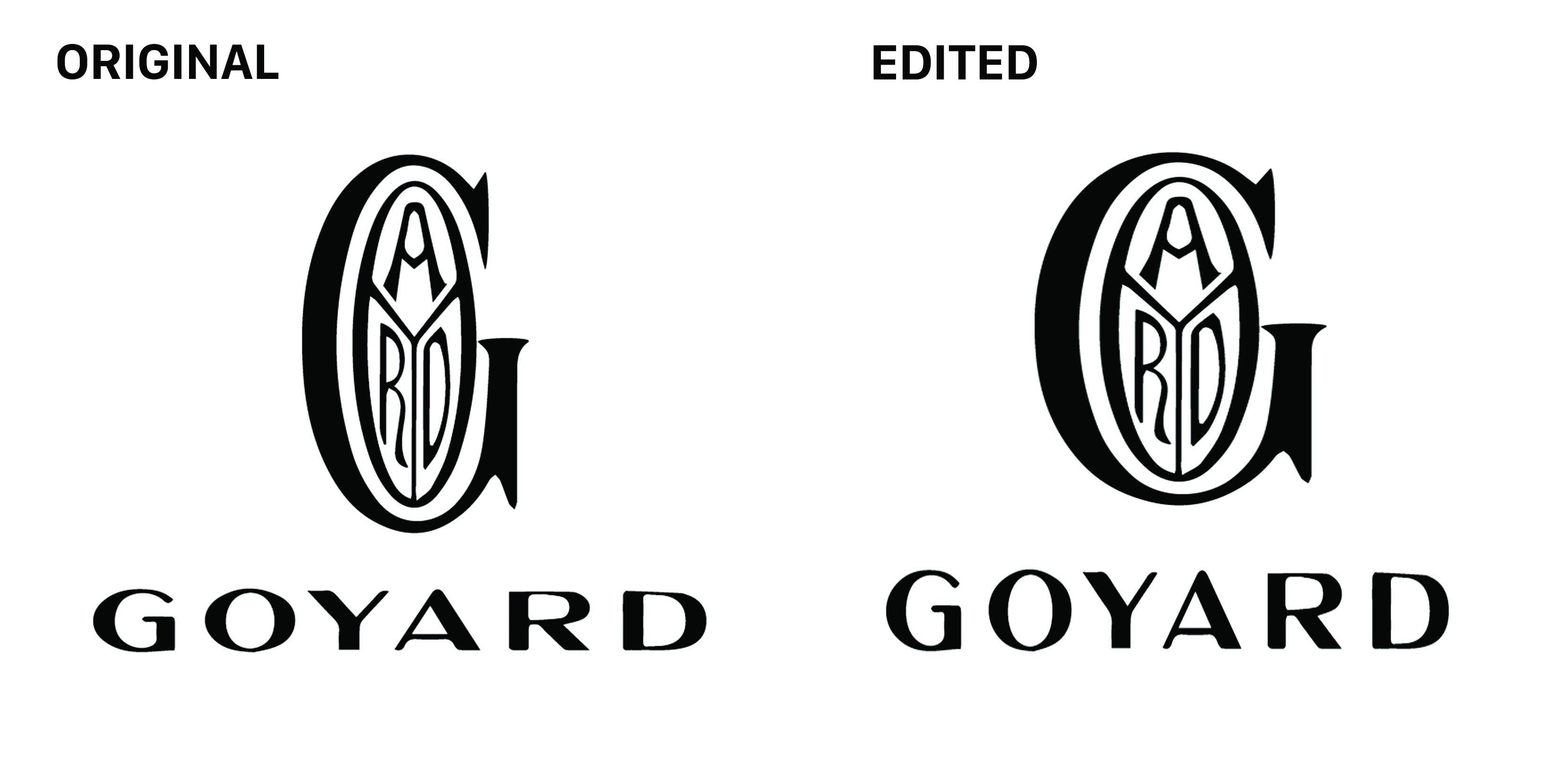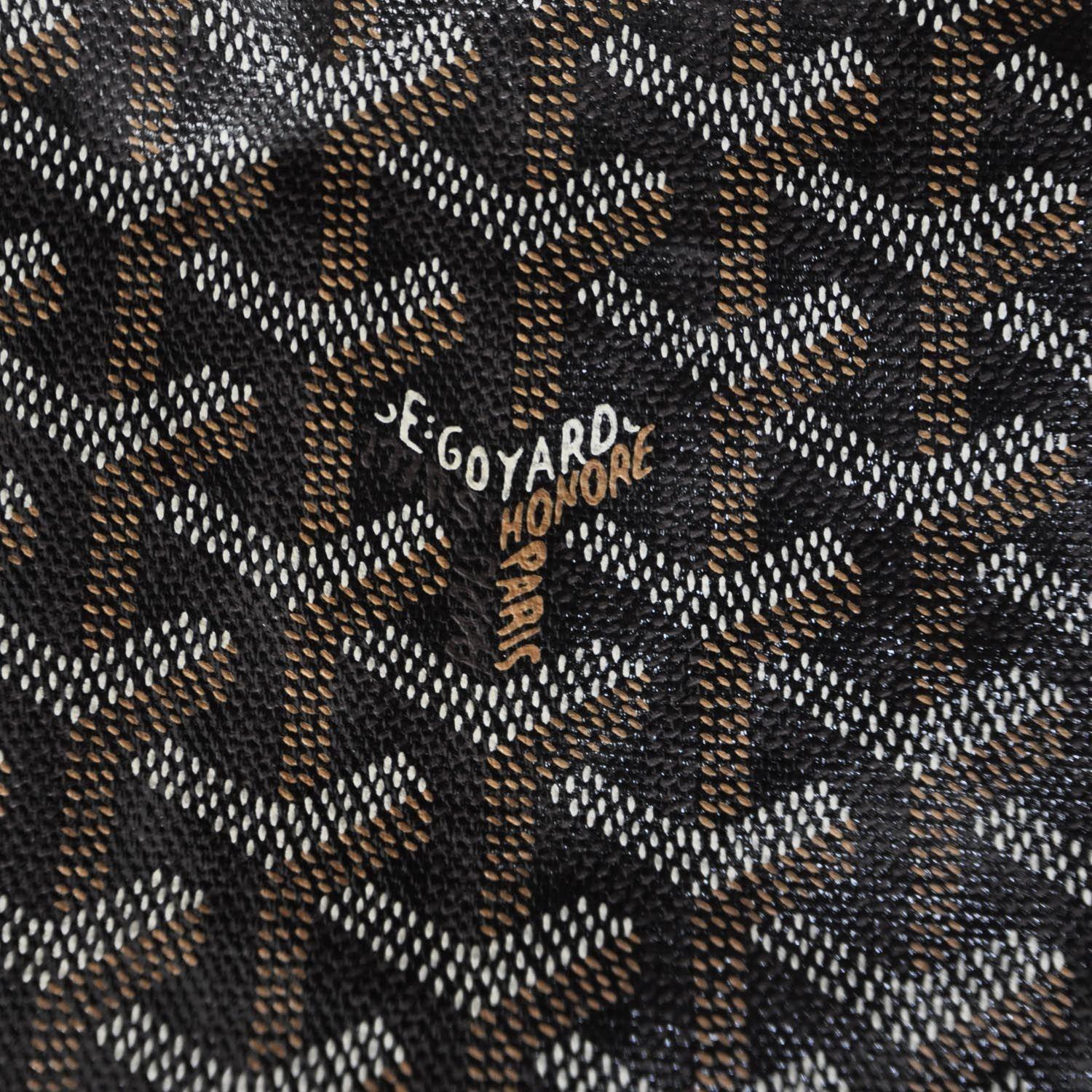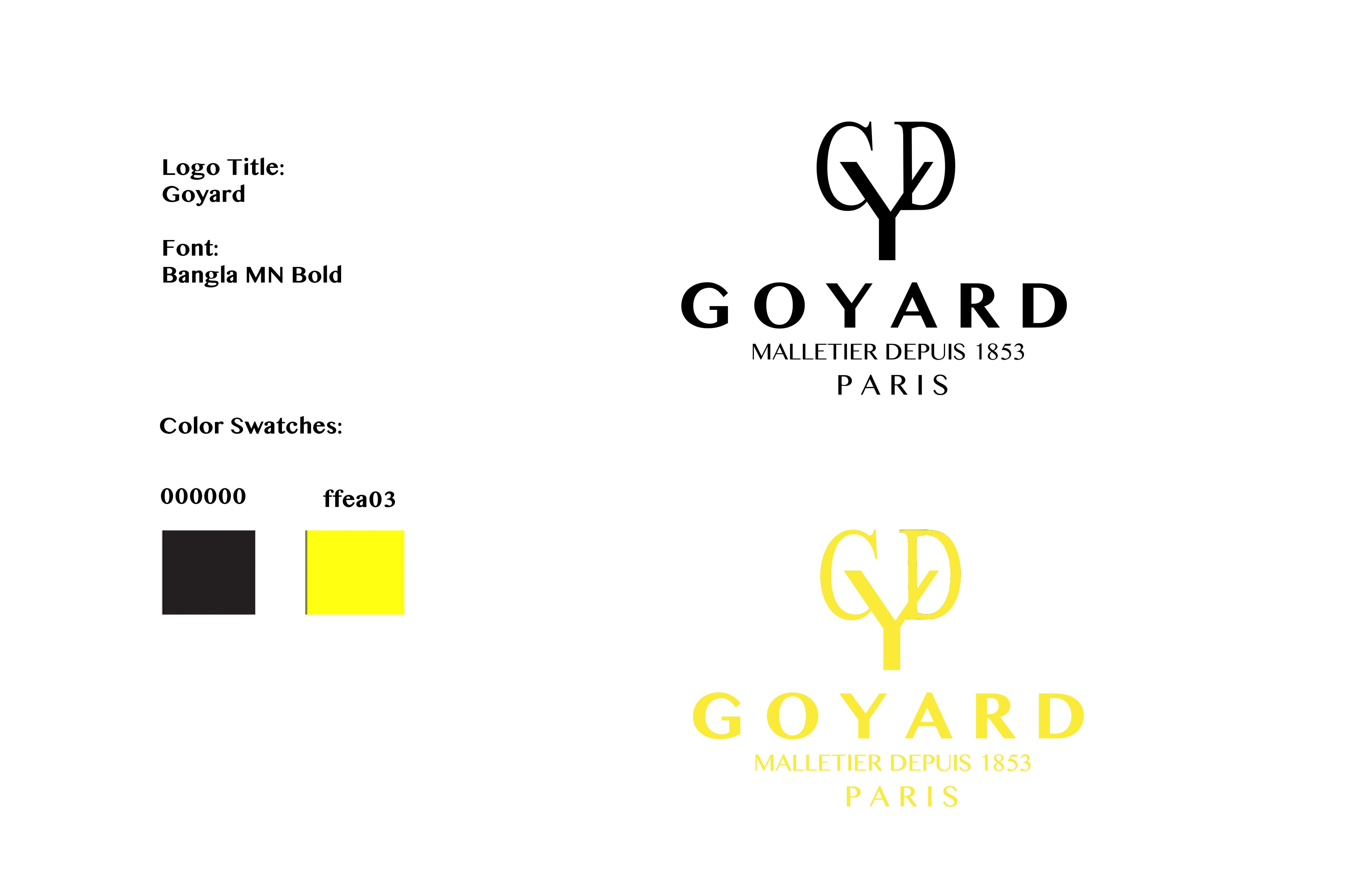There is, quite honestly, a certain elegance that comes with knowing how to say luxury brand names just right. For many, that includes the elusive pronunciation of "Goyard." You might feel a little hesitant, or perhaps even a bit unsure, when you see this name written down, and that's perfectly normal, you know? It's a common little hurdle for folks who appreciate fine things but aren't quite fluent in French, and that's totally okay.
Trying to figure out how to say "Goyard" can, in a way, feel a bit like a secret handshake in the world of high fashion. Mispronouncing it might make you feel, well, a little out of place, or perhaps even like you're missing a small piece of the puzzle. It's not just about the letters on the page; it's about honoring the heritage and the artistry behind such a respected name, too, it's almost.
This article is here to clear up any confusion you might have, so you can speak about Goyard with absolute confidence. We'll break down the sounds, explain the French influence, and give you some easy ways to remember it. By the end of this, you'll be saying "Goyard" like someone who's been collecting their exquisite pieces for years, actually.
Table of Contents
- Understanding the Goyard Legacy
- The Core of Goyard Pronunciation
- Why English Speakers Find It Tricky
- Common Mispronunciations and How to Avoid Them
- Practicing Your Goyard Pronunciation
- The Importance of Getting It Right
- Frequently Asked Questions About Goyard
- Feeling Confident About Goyard
Understanding the Goyard Legacy
Goyard, as a brand, has a really rich history, stretching back to 1853 in Paris, France. It's known for its truly distinctive chevron pattern and its truly exclusive approach to luxury goods. Unlike some other big names, Goyard doesn't really go in for a lot of advertising, which just adds to its allure, naturally. This quiet elegance, this almost understated presence, is part of what makes it so special, and knowing how to say the name correctly is a small but significant part of appreciating that heritage, too, it's almost.
The brand's roots are in trunk-making, serving a very discerning clientele, and they still maintain that tradition of exquisite craftsmanship. Their items are often seen as true collector's pieces, passed down through generations. So, when we talk about how to pronounce "Goyard," we're not just talking about sounds; we're also, in a way, acknowledging a piece of French luxury history, as a matter of fact.
The Core of Goyard Pronunciation
Alright, let's get down to the very heart of the matter: how you actually say "Goyard." The key, as you might guess, lies in its French origin. As I was saying, you really have to distinguish English spelling from pronunciation, especially when dealing with words that come from other languages. French words often have sounds that don't quite line up with how English speakers would typically read the letters, you know.
Many English speakers, when they first see "Goyard," might be tempted to say it like "go-yard," with a hard 'g' and a clear 'yard' sound at the end. However, that's not quite right for the French way of speaking. The correct pronunciation leans into the softness and flow of the French language, which is, in some respects, quite different from English, obviously.
Breaking Down the Sounds: "Go"
The first part of "Goyard" is "Go." This isn't pronounced like the English word "go" (as in, "go outside"). Instead, think of it more like the "gwa" sound you might hear in words like "Gucci" if you were saying it with a very soft 'g' and an 'ah' sound. The 'o' here is a bit more open, similar to the 'o' in "hot" but slightly more rounded, you know. It's a very subtle difference, but it's important, actually.
It's not a hard 'g' like in "gate," but rather a softer sound, almost like the 'g' in "garage" when said quickly and lightly. The 'o' should be short and open, not a long "oh" sound. So, the first part is truly more like "Gwah," or "Gwoh," with a quick, soft opening, and that's the real trick here, right.
Breaking Down the Sounds: "Yard"
Now, for the second part: "yard." This is where many English speakers trip up, thinking it's like the English word "yard" (as in, "backyard"). But in French, the 'oy' combination creates a distinct sound. It's a sound that's a bit hard for English speakers to replicate perfectly, as I've heard. It's one of those French phonemes, as my text mentioned, that English speakers often try to approximate, perhaps like in "chloë," which isn't an English letter, but appears in English names simply as an attempt to pronounce French sounds, you know.
The 'oy' in "Goyard" is pronounced like the "wa" sound in "water" or "what." So, it's not "oy" as in "boy." It's more like "wah." And the 'ard' ending? The 'r' is a soft, almost guttural French 'r' – a sound that doesn't really exist in English. It's not rolled like a Spanish 'r' or hard like an English 'r'. It's very light, almost like clearing your throat very gently, you know. And the 'd' at the end is virtually silent, or just barely there, like a tiny whisper, as a matter of fact.
So, the second part of the word sounds closer to "wahr," but with that almost silent 'd'. It's very subtle, and that's the challenge, you know. It's a sound that you just have to practice a little bit to get right, basically.
Putting It All Together: Goyard
When you put both parts together, the correct pronunciation of Goyard is: **Gwah-yahr**. Say it out loud: **Gwah-yahr**. The emphasis is pretty much even, or perhaps just slightly on the first syllable, Gwah. Remember that soft 'g' at the beginning, the 'wah' sound for 'oy', and the very soft 'r' with an almost silent 'd' at the end, too, it's almost.
Think of it as two distinct, flowing syllables, not separated too sharply. It's not "Go-yard" or "Goy-ard." It's a smooth, elegant sound, much like the brand itself. You might find it helpful to hear a native French speaker say it, and there are many resources online for that, of course. For instance, you could listen to the pronunciation on a well-known online dictionary, which often provides audio examples, and that's a great way to learn, actually.
Why English Speakers Find It Tricky
The difficulty English speakers face with "Goyard" stems from a few key linguistic differences, you know. As my text mentioned, there's a real distinction between English spelling and pronunciation, and this becomes very clear when we look at French words. English tends to be quite phonetic in some ways, but French has many silent letters and unique vowel and consonant combinations that simply don't translate directly, and that's a big part of it, basically.
For example, the 'oy' in "Goyard" is a perfect illustration. In English, 'oy' sounds like in "boy" or "toy." In French, it's a completely different sound, like "wah." This mismatch between what the letters suggest in English and what they actually sound like in French is a primary source of confusion, and that's just how it is, sometimes.
Also, the French 'r' sound is a challenge for many. We don't have an equivalent in English. My text also touched on how English speakers attempt to pronounce French phonemes, like with the letter 'ë' in names like Chloë. It's an effort to capture a sound that isn't naturally part of the English phonetic inventory, and the same applies to the 'r' in Goyard, too, it's almost.
Then there's the silent 'd' at the end. English words typically pronounce most consonants at the end, but French often drops them. This can be quite disorienting for someone used to English pronunciation rules, so, in some respects, it's like learning a whole new set of rules for familiar-looking letters, you know.
Common Mispronunciations and How to Avoid Them
Knowing the common ways people get "Goyard" wrong can actually help you avoid those mistakes yourself, you know. It's like understanding where the pitfalls are. One very frequent mispronunciation is "Go-yard," as if it were two separate English words. This completely misses the French 'oy' sound and the subtle ending, as a matter of fact.
Another common error is to pronounce the 'g' too hard, like in "golf," rather than the softer, almost whispered 'g' that starts the word. Some might also overemphasize the 'r' or pronounce the 'd' too clearly, making it sound less fluid and authentic. These little details really do make a difference, and that's what we're aiming for here, right.
To avoid these, always remember the "Gwah-yahr" breakdown. Focus on the soft initial sound, the "wah" for 'oy', and the almost imperceptible 'd'. It's about letting the sounds flow together, rather than chopping them up into distinct English syllables, and that's a key point, too, it's almost. Just try to keep it light and airy, like the French language itself, you know.
Practicing Your Goyard Pronunciation
Practice truly makes perfect, or at least much, much better, when it comes to pronunciation, you know. Don't be shy about saying "Goyard" out loud, even if it's just to yourself. Repetition is a powerful tool for getting your tongue and mouth accustomed to new sounds, and that's pretty much it, honestly.
Here are some simple steps to help you master it:
- **Start Slow:** Begin by saying "Gwah" several times. Focus on that soft 'g' and the open 'ah' sound.
- **Add the Second Part:** Then, practice "yahr." Remember the "wah" for 'oy' and the soft, almost silent 'd' at the end.
- **Combine and Flow:** Once you're comfortable with each part, slowly put them together: "Gwah-yahr." Try to make it flow smoothly, without a harsh break in the middle.
- **Listen and Repeat:** Find audio examples online. Listen to how native French speakers say it, and then try to imitate them exactly. This is probably the most effective way to fine-tune your pronunciation, as a matter of fact.
- **Record Yourself:** Use your phone to record your voice saying "Goyard." Then, play it back and compare it to a correct pronunciation. You might be surprised at what you hear, and this can help you pinpoint areas for improvement, too, it's almost.
Remember, it's a process. You might not get it perfectly on the first try, and that's absolutely fine. Keep practicing, and you'll soon find yourself saying "Goyard" with genuine confidence, you know.
The Importance of Getting It Right
You might wonder why it's such a big deal to pronounce a brand name correctly. Well, in the world of luxury, it's often seen as a sign of respect for the brand's heritage and its country of origin, you know. It shows that you've taken the time to learn, and that you appreciate the nuances that make these brands so special. It's a small detail, but it speaks volumes, as a matter of fact.
Furthermore, correctly pronouncing names like Goyard helps you feel more comfortable and confident when discussing luxury items. It prevents those awkward moments of hesitation or the feeling that you might be saying something wrong. It's about empowering you to speak about your interests with ease and authority, and that's really what it comes down to, you know.
As my text highlighted with the word "pronounce" itself, which comes from French, there's a deep connection between language and identity. Knowing how to say "Goyard" properly connects you, in a small way, to that French linguistic tradition and the sophisticated world it represents, too, it's almost. It's a subtle nod to the craftsmanship and history, and that's pretty cool, honestly.
Learn more about French linguistic influences on our site, and link to this page for more luxury brand insights.
Frequently Asked Questions About Goyard
Many people have similar questions about Goyard and its pronunciation, so let's clear up some of the most common ones, you know.
Is the 'd' in Goyard silent?
Yes, the 'd' at the very end of "Goyard" is almost entirely silent, or just barely, barely whispered. In French, it's very common for final consonants, especially 'd' and 't', not to be pronounced. So, when you say "Goyard," don't make a hard 'd' sound, just let it fade away, and that's the way to do it, basically.
Why is Goyard pronounced so differently from its spelling?
The main reason for the difference is that "Goyard" is a French word, and French pronunciation rules are just very different from English ones. As my text pointed out, you really have to distinguish English spelling from pronunciation. The 'oy' combination, the soft 'g', and the silent final 'd' are all typical French sounds and spelling conventions that don't have direct equivalents in English, and that's just how it is, you know. It's a common challenge when English speakers try to say French phonemes, as my text mentioned, too, it's almost.
Does it matter if I mispronounce Goyard?
While it's not the end of the world, getting the pronunciation right shows respect for the brand's heritage and its French origins. It also helps you speak more confidently about luxury items. Think of it as a small detail that enhances your overall appreciation and knowledge of high fashion, and that's pretty much it, honestly. It just feels better to say it correctly, you know.
Feeling Confident About Goyard
By now, you should feel much more prepared to say "Goyard" with genuine confidence. Remember, it's **Gwah-yahr**. It's a beautiful name for a beautiful brand, and saying it correctly is a small but significant way to show your appreciation for its legacy. Keep practicing those sounds, and you'll soon find it rolls off your tongue quite naturally, you know. So, go ahead and speak about Goyard with the elegance it deserves, and that's truly what it's all about, actually. Today's date is October 26, 2023, and you're now ready to speak like a true connoisseur, too, it's almost.



Detail Author:
- Name : Garrick Kunze
- Username : ruth.abbott
- Email : roger.cassin@yahoo.com
- Birthdate : 1999-02-10
- Address : 9451 Ansel Summit Armstrongburgh, UT 55421-8758
- Phone : 443-947-7503
- Company : Bins and Sons
- Job : Pantograph Engraver
- Bio : Aut qui aut delectus aperiam modi iusto nihil. Consectetur rerum eos facilis voluptas magni quas. Veritatis dolorem tenetur dolore aut aut.
Socials
facebook:
- url : https://facebook.com/milan9655
- username : milan9655
- bio : Sit enim fuga quibusdam vel reiciendis.
- followers : 5965
- following : 2521
twitter:
- url : https://twitter.com/milan.effertz
- username : milan.effertz
- bio : Velit aliquid nostrum atque consequuntur consequatur rerum ducimus. Temporibus ex nam ullam doloremque consequuntur. Asperiores ut numquam atque ut aspernatur.
- followers : 4080
- following : 89
linkedin:
- url : https://linkedin.com/in/milan6660
- username : milan6660
- bio : Suscipit et ut provident perspiciatis.
- followers : 101
- following : 749

